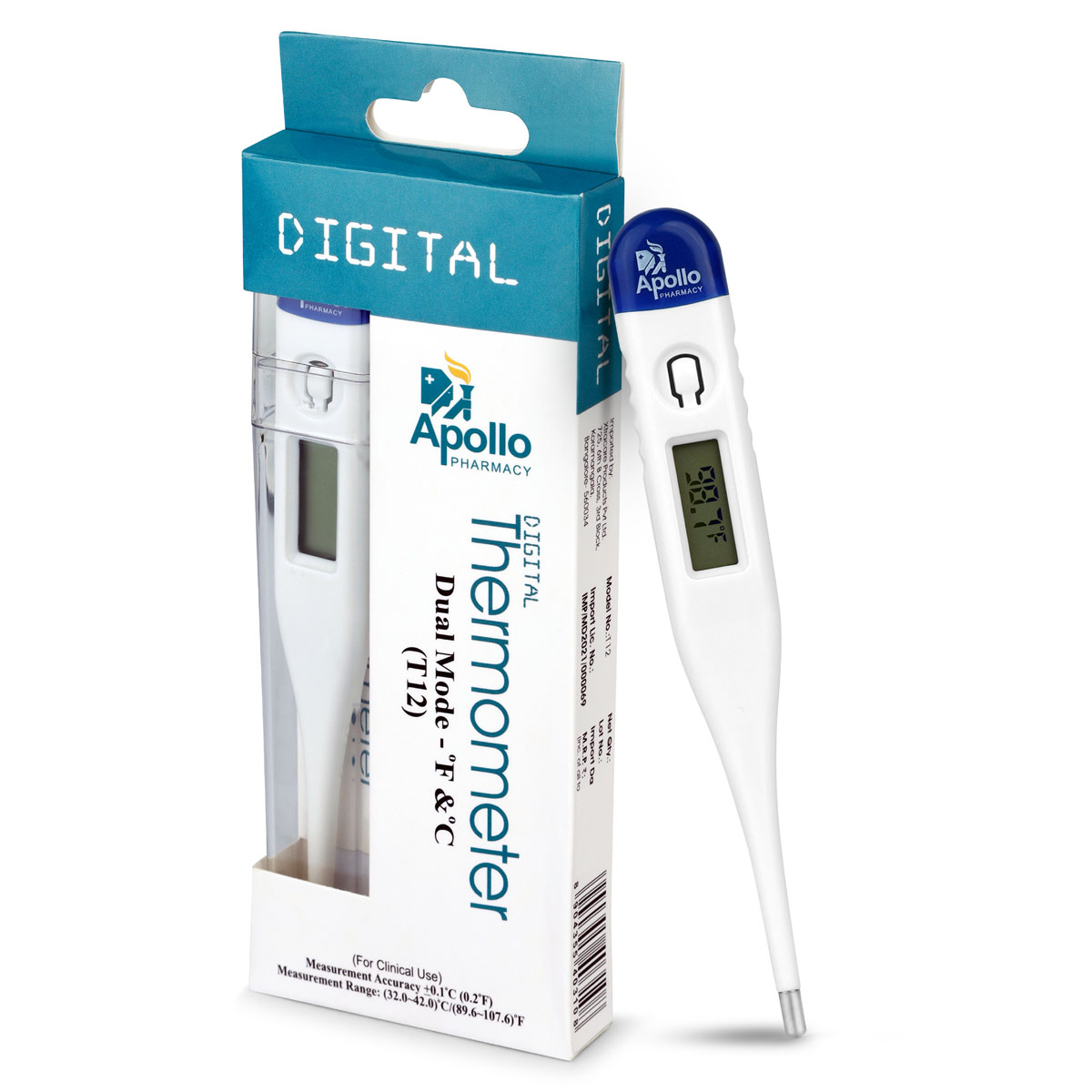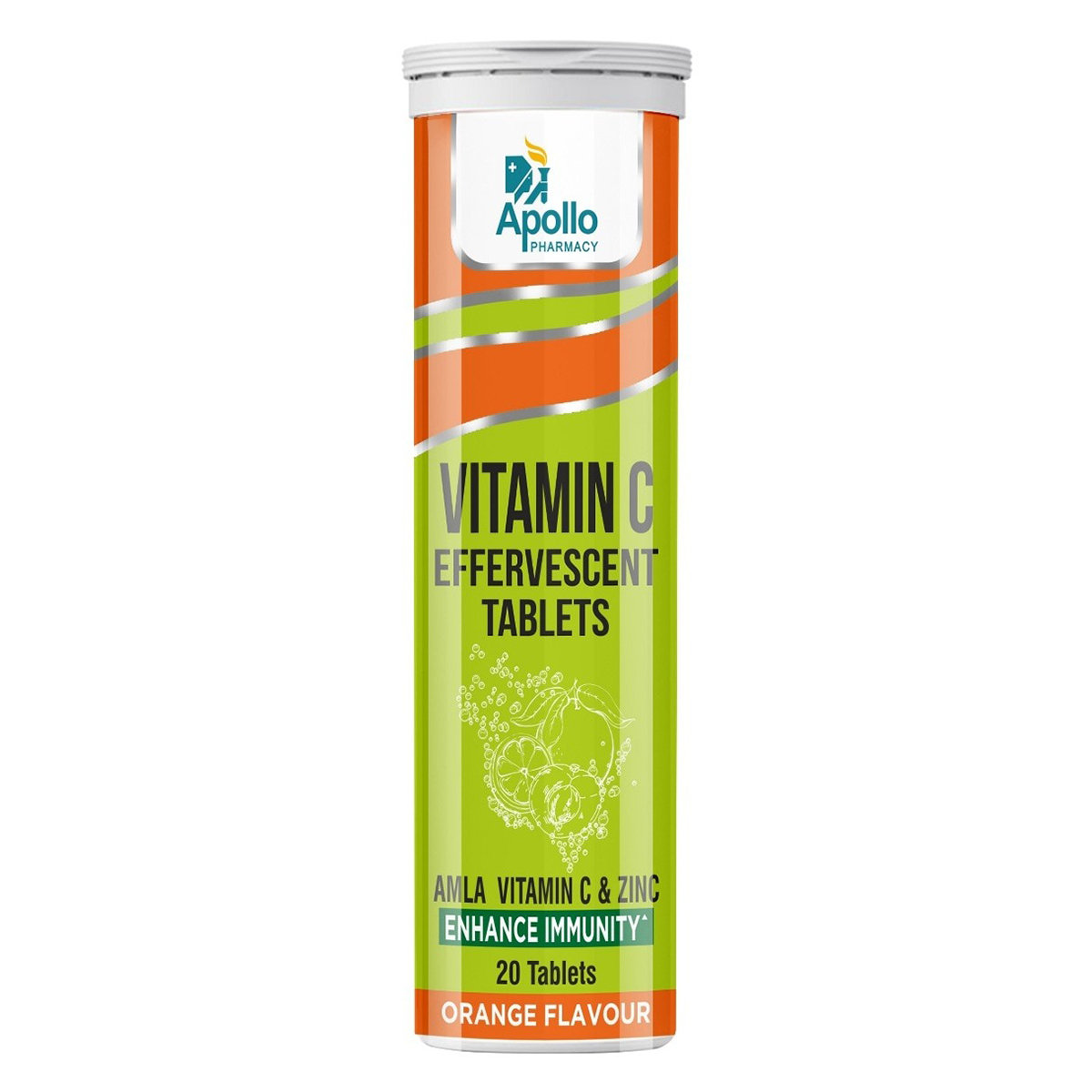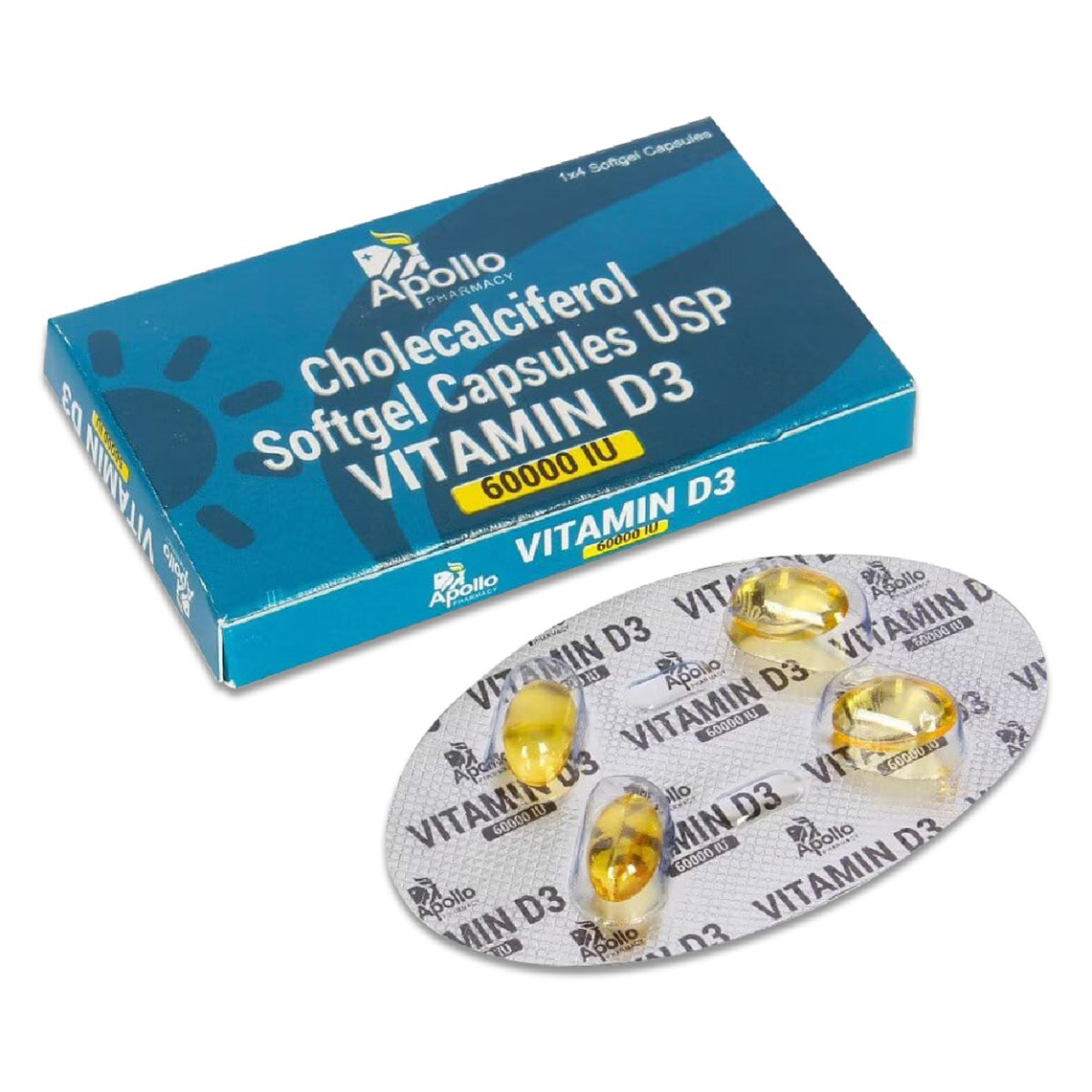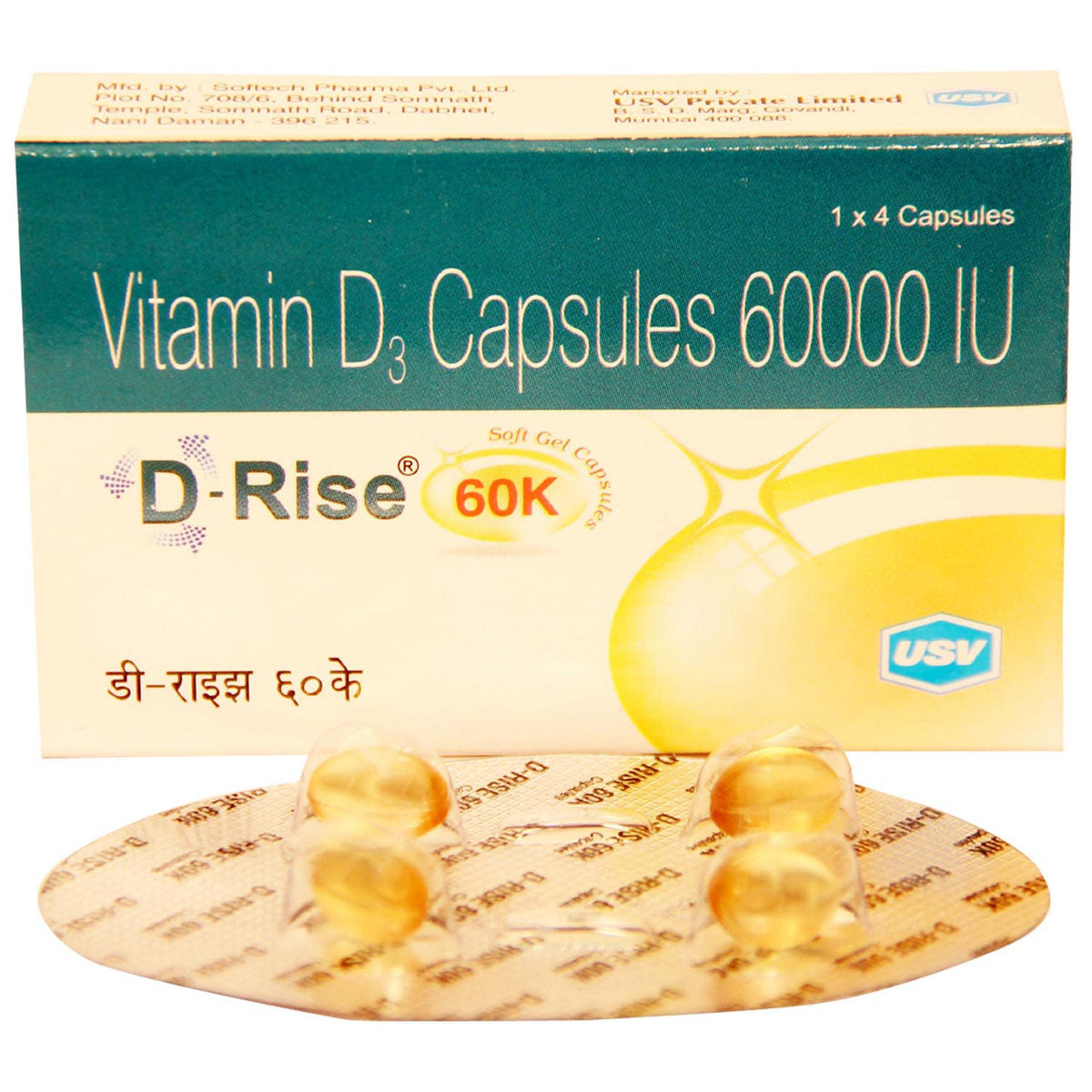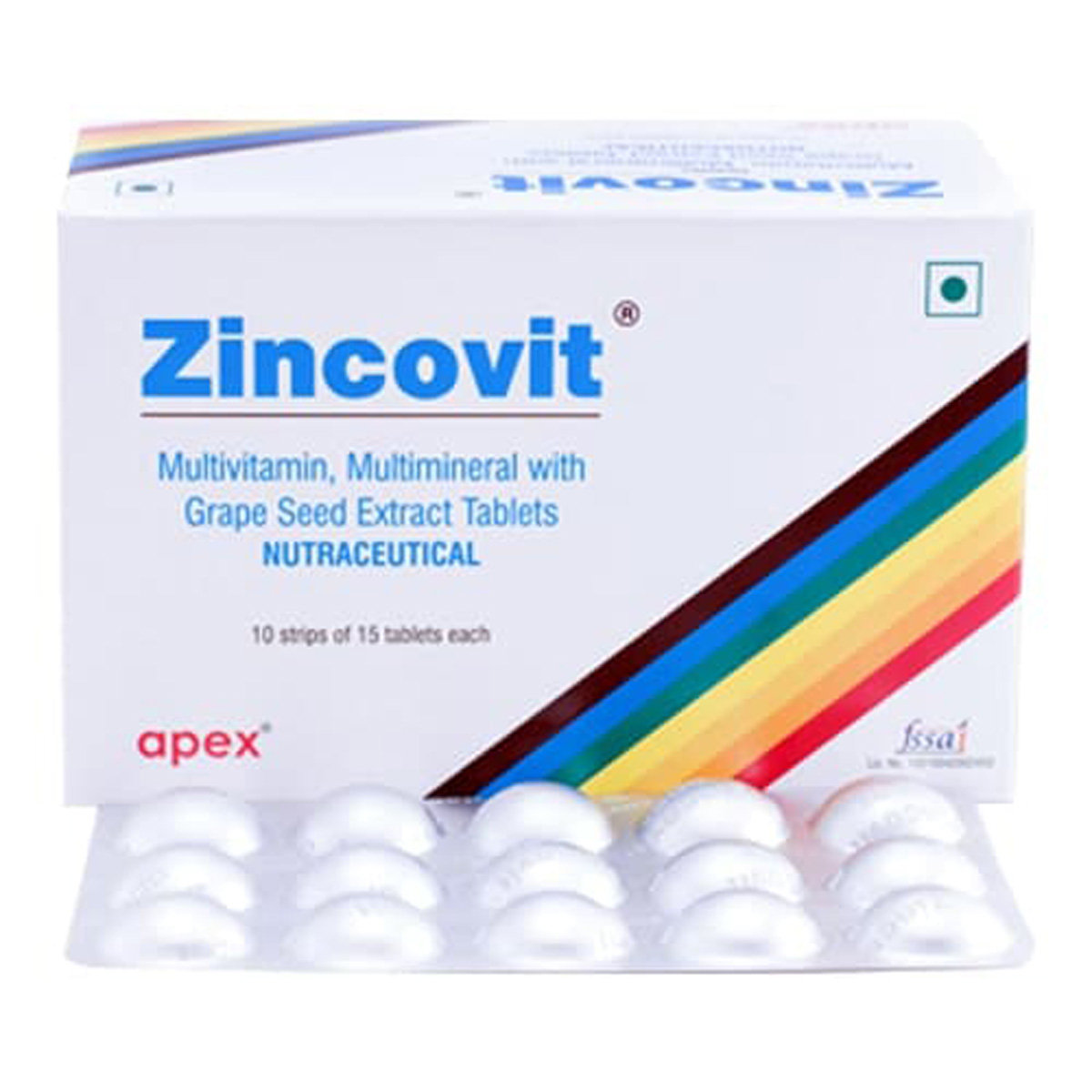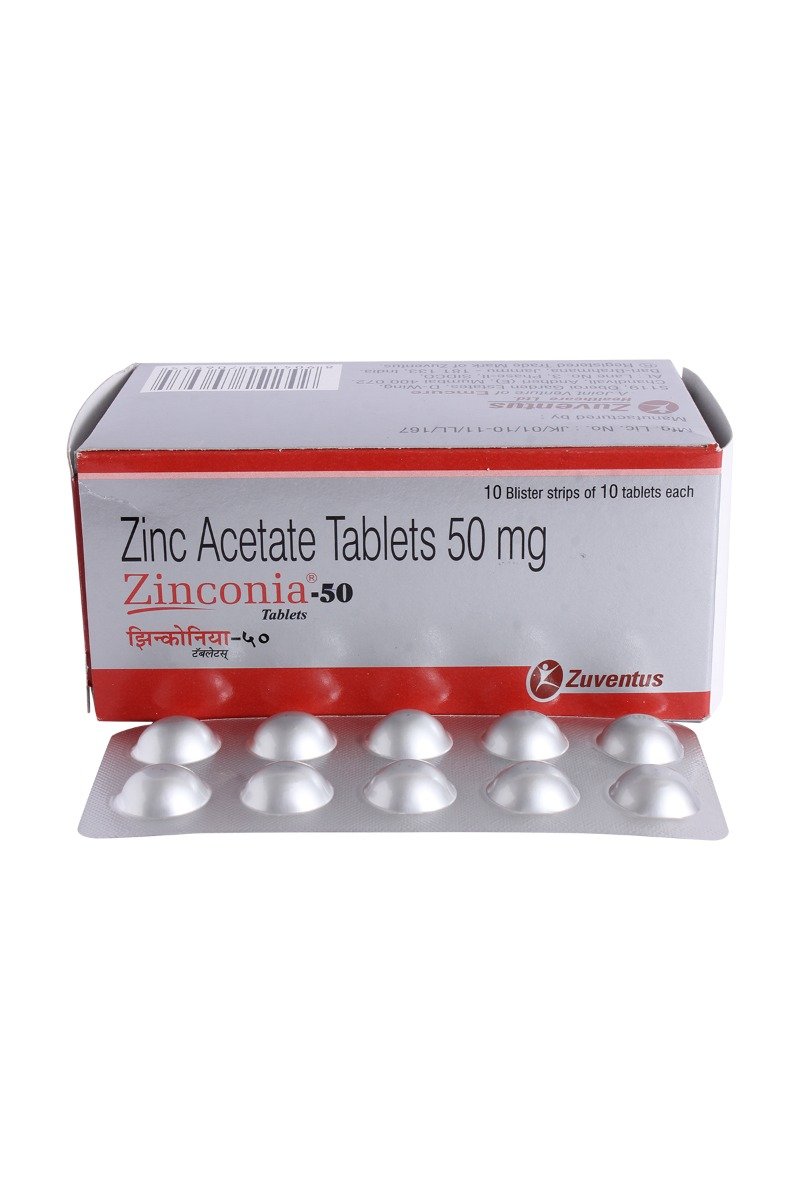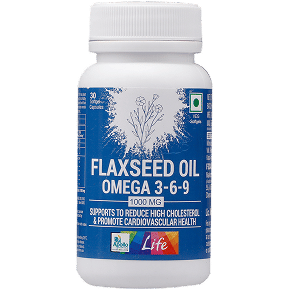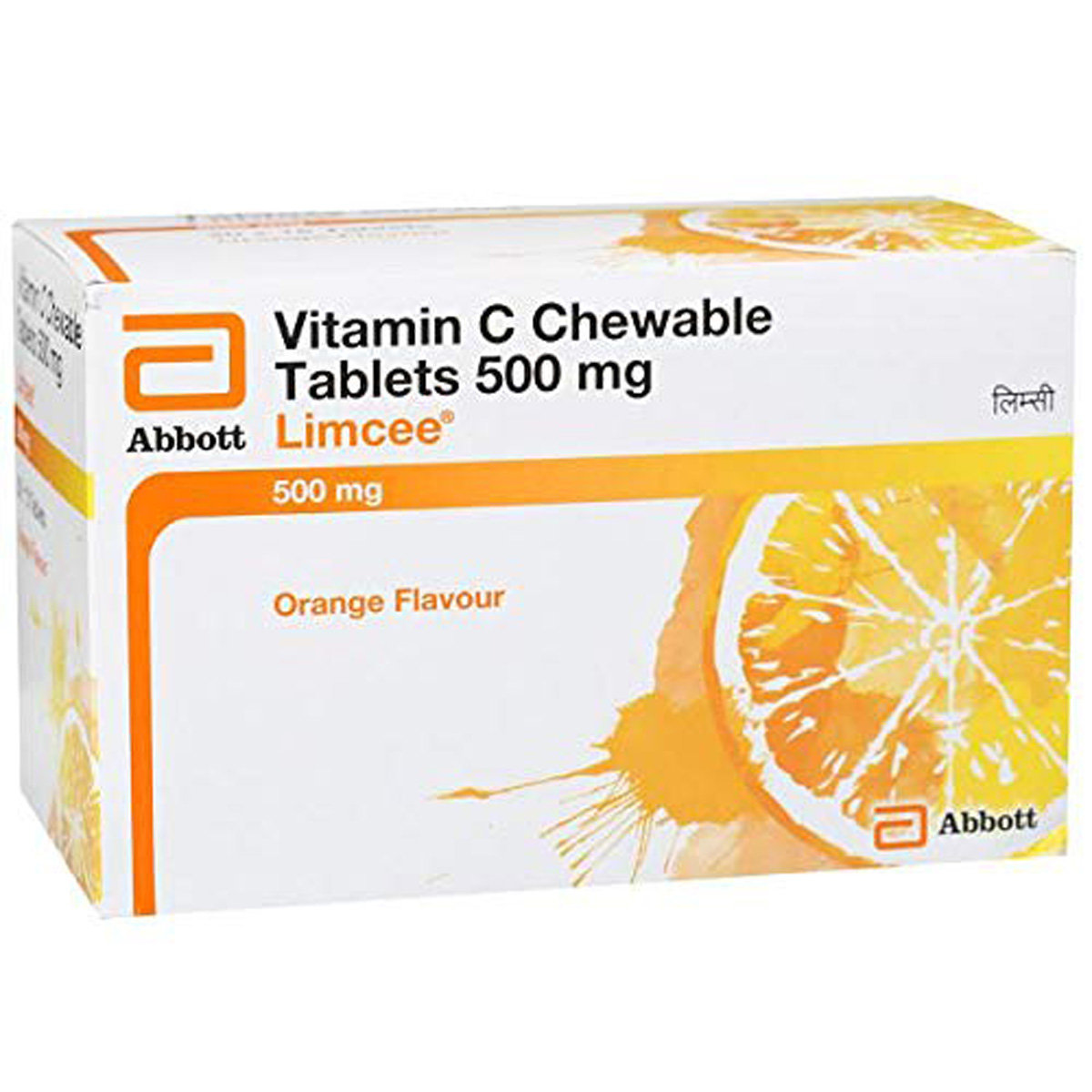Benadryl DR Syrup, 100 ml
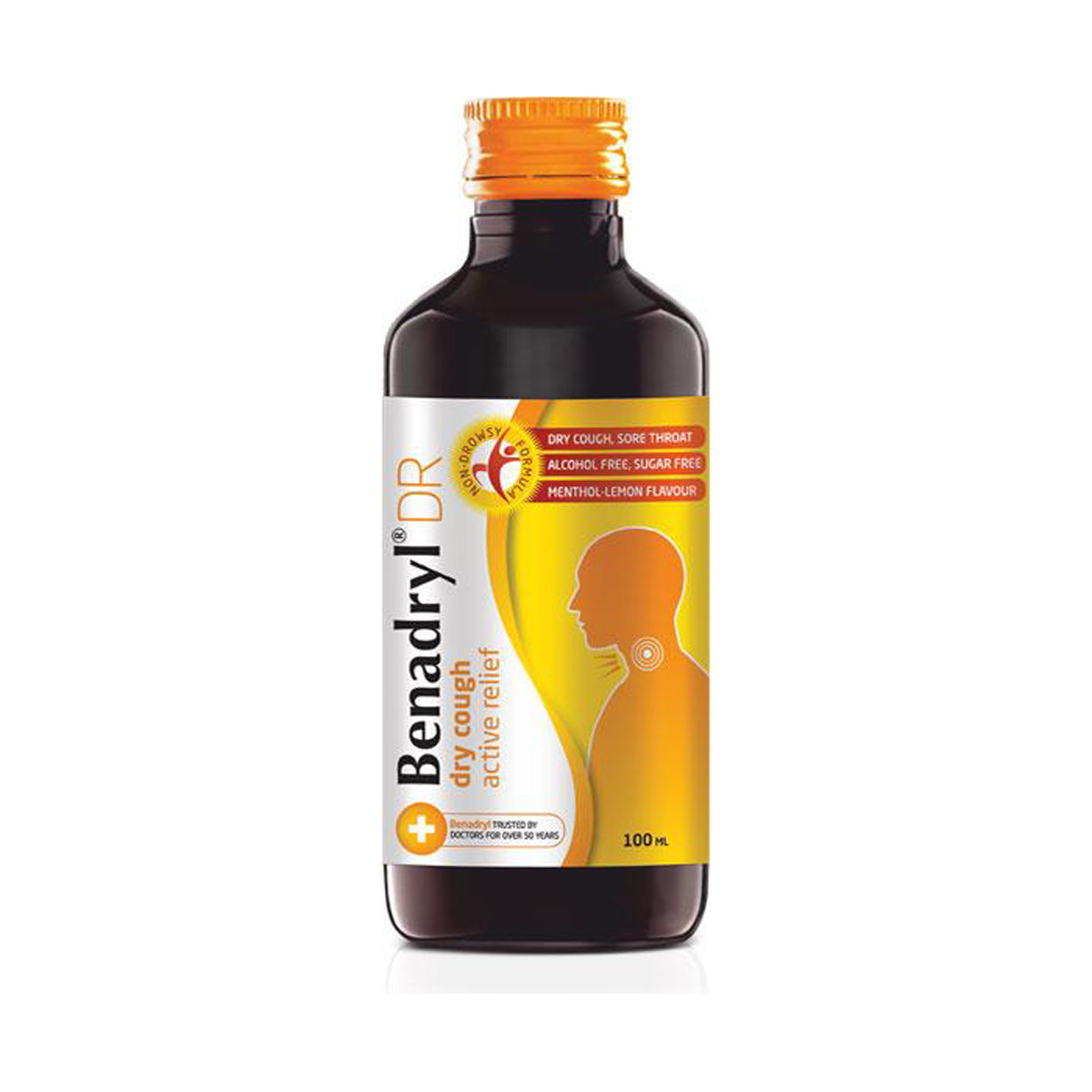
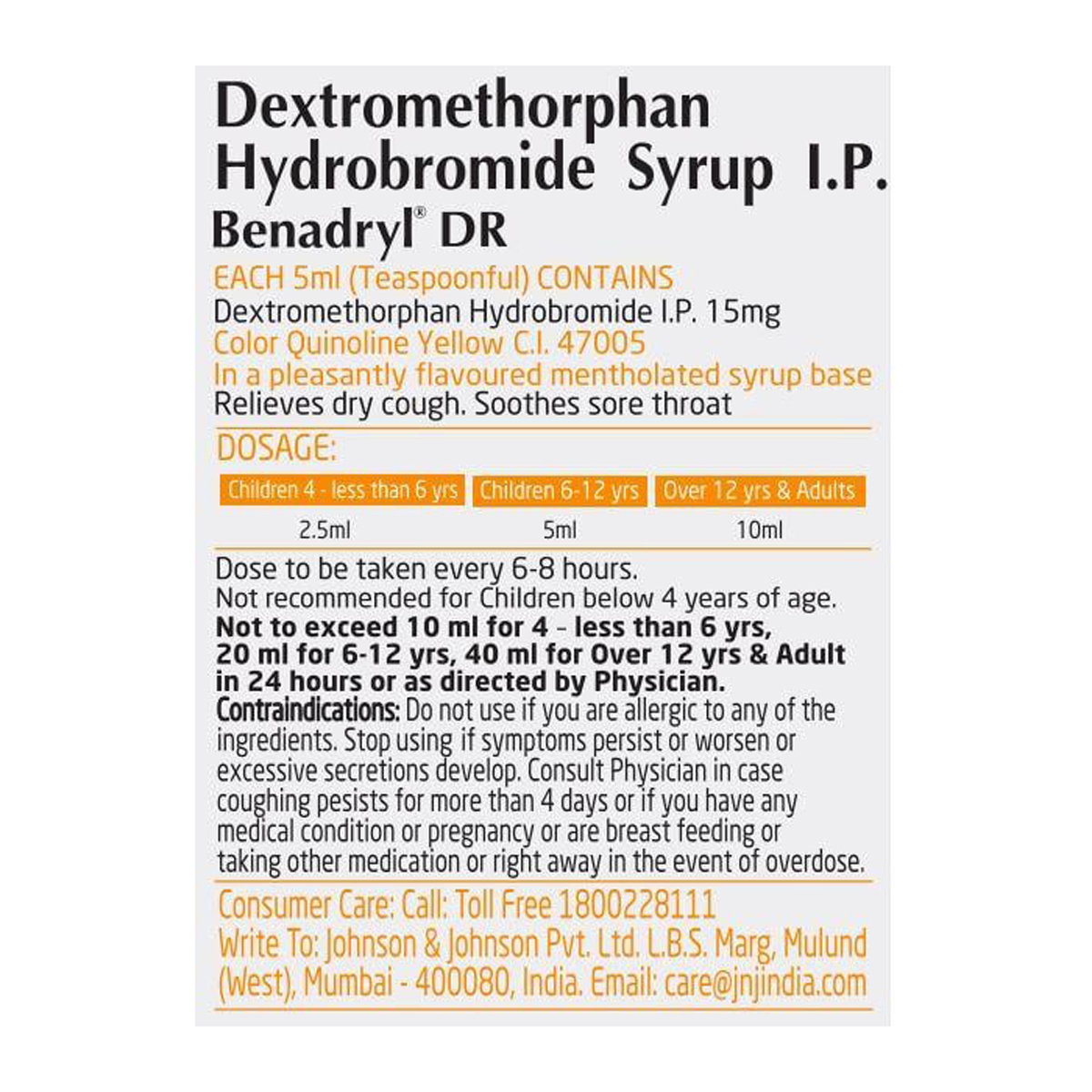
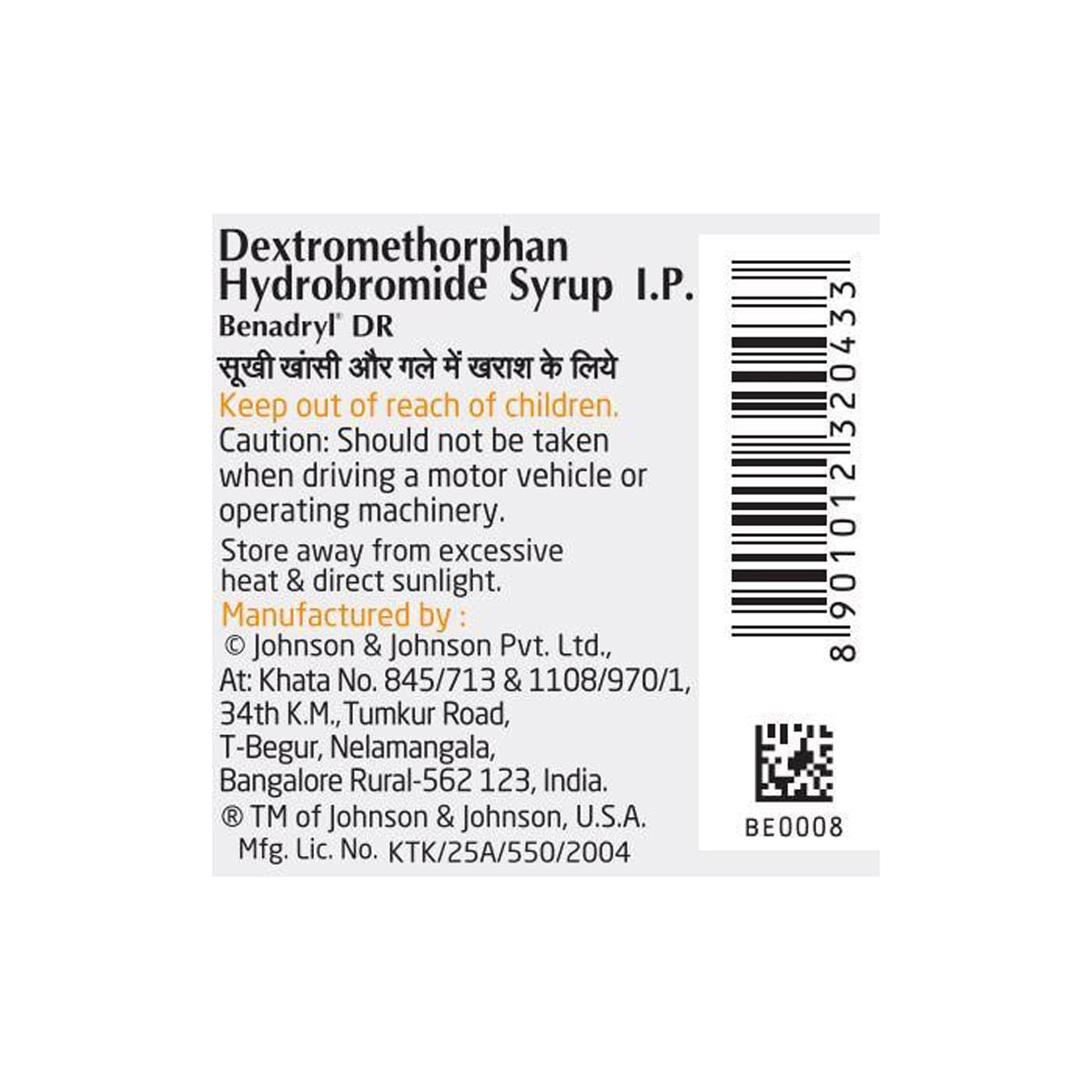



MRP ₹138.5
(Inclusive of all Taxes)
₹18.7 Cashback (15%)
Selected Pack Size:100 ml
100 ml ₹124.7
(₹1.25 / 1 ml)
In Stock
50 ml ₹75.6
(₹1.51 / 1 ml)
In Stock
Provide Delivery Location
Online payment accepted
 Prescription drug
Prescription drugWhats That
Composition :
Manufacturer/Marketer :
Consume Type :
Return Policy :
Expires on or after :
About Benadryl DR Syrup
Benadryl DR Syrup contains an anti-tussive (relieve cough) medication primarily used to treat dry cough. A cough is a reflex action that helps to clear any foreign irritant or mucus in the throat.
Benadryl DR Syrup contains Dextromethorphan hydrobromide, a cough suppressant. It works by blocking the cough receptor present in the brain, which is known to cause cough.
The most common side effects of Benadryl DR Syrup are dizziness, drowsiness, sleepiness, confusion, and nausea. Most of these side effects do not require medical attention and gradually resolve over time. However, if the side effects persist or worsen, please consult your doctor.
If you are pregnant or breastfeeding, please inform your doctor before starting Benadryl DR Syrup. Benadryl DR Syrup should be given to children only if prescribed by the doctor. Benadryl DR Syrup may cause drowsiness, so drive with caution. Let your doctor know if you are taking any prescription/non-prescription drugs or herbal products before starting Benadryl DR Syrup.
Uses of Benadryl DR Syrup
Directions for Use
Medicinal Benefits
Benadryl DR Syrup is primarily used to treat dry cough. Benadryl DR Syrup contains Dextromethorphan hydrobromide, a cough suppressant. It works by blocking the cough receptor present in the brain, which is known to cause cough. Benadryl DR Syrup is generally prescribed for short-term treatment of dry cough.
Storage
- Inform your doctor about the nausea and discuss possible alternatives to the medication or adjustments to the dosage.
- Divide your daily food intake into smaller, more frequent meals to reduce nausea.
- Opt for bland, easily digestible foods like crackers, toast, plain rice, bananas, and applesauce.
- Avoid certain foods that can trigger nausea, such as fatty, greasy, spicy, and smelly foods.
- Drink plenty of fluids, such as water, clear broth, or electrolyte-rich beverages like coconut water or sports drinks.
- Use ginger (tea, ale, or candies) to help relieve nausea.
- Get adequate rest and also avoid strenuous activities that can worsen nausea.
- Talk to your doctor about taking anti-nausea medication if your nausea is severe.
- Record when your nausea occurs, what triggers it, and what provides relief to help you identify patterns and manage your symptoms more effectively.
- Preventing Vomiting (Before it Happens)
- Take medication exactly as prescribed by your doctor. This can help minimize side effects, including vomiting.
- Having a small meal before taking your medication can help reduce nausea and vomiting.
- Talk to your doctor about taking anti-nausea medication along with your prescribed medication.
- Managing Vomiting (If it Happens)
- Try taking ginger in the form of tea, ale, or candy to help alleviate nausea and vomiting.
- What to Do if Vomiting Persists
- Consult your doctor if vomiting continues or worsens, consult the doctor for guidance on adjusting your medication or additional treatment.
- Inform your doctor about your constipation symptoms. They may adjust your medication or advise alternative treatments.
- Stay hydrated by drinking sufficient of water (at least 8-10 glasses a day) to help soften stool and promote bowel movements.
- Increase fibre intake by eating foods high in fibre, such as fruits, whole grains, vegetables and legumes, to help bulk up the stool.
- Establish a bowel routine by trying to go to the bathroom at the same time each day to train your bowels.
- Engaging in regular exercise, like walking or yoga, can support in bowel movement stimulation.
- Consult your doctor if constipation persists, and discuss alternative treatments or adjustments to your medication.
- Get enough sleep. Maintain a regular sleep cycle.
- Eat a healthy diet and exercise regularly.
- Manage stress with yoga or meditation.
- Limit alcohol and caffeine.
- Avoid driving or operating machinery unless you are alert.
- Inform your doctor about dizziness symptoms. They may adjust your medication regimen or prescribe additional medications to manage symptoms.
- Follow your doctor's instructions for taking medication, and take it at the same time every day to minimize dizziness.
- When standing up, do so slowly and carefully to avoid sudden dizziness.
- Avoid making sudden movements, such as turning or bending quickly, which can exacerbate dizziness.
- Drink plenty of water throughout the day to stay hydrated and help alleviate dizziness symptoms.
- If you're feeling dizzy, sit or lie down and rest until the dizziness passes.
- Track when dizziness occurs and any factors that may trigger it, and share this information with your doctor to help manage symptoms.
- Avoid driving or operating machinery or activities that require high focus until you know how the medication affects you.
- Maintain a fixed sleeping schedule, create a relaxing bedtime routine and ensure your sleeping space is comfortable to maximize your sleep quality.
- Limit alcohol and caffeine as these may worsen drowsiness and disturb sleep patterns.
- Drink plenty of water as it helps with alertness and keeps you hydrated and for overall well-being.
- Moderate physical activity can improve energy levels, but avoid intense workouts right before bedtime.
- Confusion is a major psychotic disorder that needs immediate medical attention.
- Acknowledge your experience and put effort to control confusion.
- Avoid smoking and alcohol intake as it can worsen the condition and increase your confusion.
- Practice meditation and yoga to avoid anxiety, which can be one of the leading causes.
- Talk to your dietician and consume food that can improve your mental health.
Drug Warnings
Do not take Benadryl DR Syrup if you are allergic to any of the contents. If you are pregnant or breastfeeding, please inform your doctor before starting Benadryl DR Syrup. If your condition does not improve or you have a recurring cough with fever, rash, please visit the doctor immediately, as this could be serious. Benadryl DR Syrup should be taken at least 15 days after the last dose of anti-depressants, especially monoamine oxidase inhibitors (MAO), as taking both together may be fatal.
Drug-Drug Interactions
Drug-Drug Interactions
Login/Sign Up
Co-administration of Benadryl DR Syrup, 100 ml and Selegiline may increase the risk of serotonin syndrome (a condition in which a chemical called serotonin builds up in your body).
How to manage the interaction:
Co-administration of Selegiline with Benadryl DR Syrup, 100 ml can possibly result in an interaction, but it can be taken if a doctor has advised it. If you notice any of these symptoms - confusion, hallucination, fits, increased heart rate, fever, excessive sweating, shivering, shaking, blurred vision, muscle spasm, stiffness, incoordination, stomach cramps, nausea, vomiting, or diarrhea - make sure to contact a doctor right away. Do not stop using any medications without talking to a doctor.
Co-administration of Isocarboxazid with Benadryl DR Syrup, 100 ml can increase the risk of serotonin syndrome (A condition in which a chemical called serotonin builds up in your body).
How to manage the interaction:
Taking Benadryl DR Syrup, 100 ml and Isocarboxazid can lead to an interaction. However, if you experience any symptoms like confusion, hallucination, seizure, changes in blood pressure, increased heart rate, fever, excessive sweating, shivering or shaking, blurred vision, muscle stiffness, tremors, stomach cramps, nausea, vomiting, and diarrhea, consult a doctor immediately. Do not stop using any medications without a doctor's advice.
Taking Rasagiline with Benadryl DR Syrup, 100 ml can increase the risk of serotonin syndrome (A condition in which a chemical called serotonin increase in your body).
How to manage the interaction:
Taking Benadryl DR Syrup, 100 ml with Rasagiline is not recommended as it can possibly result in an interaction, it can be taken if a doctor has advised it. If you notice any of these symptoms like confusion, hallucination, fits, extreme changes in blood pressure, increased heart rate, fever, excessive sweating, shivering or shaking, blurred vision, muscle spasm or stiffness, shaking, incoordination, stomach cramps, nausea, vomiting, and diarrhea, consult a doctor. Do not discontinue any medications without consulting a doctor.
Co-administration of Phenelzine and Benadryl DR Syrup, 100 ml can increase the risk of serotonin syndrome (A condition in which a chemical called serotonin builds up in your body).
How to manage the interaction:
Co-administration of Phenelzine and Benadryl DR Syrup, 100 ml can lead to an interaction. However, if you experience any symptoms like confusion, hallucination, seizure, changes in blood pressure, increased heart rate, fever, excessive sweating, shivering or shaking, blurred vision, muscle stiffness, tremors, stomach cramps, nausea, vomiting, and diarrhea, consult a doctor immediately. Do not stop using any medications without a doctor's advice.
Taking Tranylcypromine with Benadryl DR Syrup, 100 ml can increase the risk of serotonin syndrome (a condition in which a chemical called serotonin increases in your body).
How to manage the interaction:
Taking Benadryl DR Syrup, 100 ml with Tranylcypromine is not recommended, but can be taken together if prescribed by a doctor. However, consult a doctor if you experience confusion, hallucination(seeing and hearing things that do not exist), fit blood pressure alteration, increased heart rate, fever, excessive sweating, shivering or shaking, blurred vision, pain in the muscles or stiffness, incoordination, stomach cramps, nausea, vomiting, and diarrhea. Do not discontinue any medications without consulting a doctor.
Co-administration of Pargyline and Benadryl DR Syrup, 100 ml can increase the risk of serotonin syndrome (A condition in which a chemical called serotonin builds up in your body).
How to manage the interaction:
Co-administration of Benadryl DR Syrup, 100 ml and Pargyline can lead to an interaction. However, if you experience any symptoms like confusion, hallucination, seizure, changes in blood pressure, increased heart rate, fever, excessive sweating, shivering or shaking, blurred vision, muscle stiffness, tremors, stomach cramps, nausea, vomiting, and diarrhea, consult a doctor immediately. Do not stop using any medications without a doctor's advice.
Co-administration of Benadryl DR Syrup, 100 ml and Procarbazine may increase the risk of serotonin syndrome (a condition in which a chemical called serotonin builds up in your body).
How to manage the interaction:
Co-administration of Procarbazine with Benadryl DR Syrup, 100 ml can possibly result in an interaction, but it can be taken if a doctor has advised it. If you notice any of these symptoms - confusion, hallucination, seizure, increased heart rate, fever, excessive sweating, shivering, shaking, blurred vision, muscle spasm, stiffness, incoordination, stomach cramps, nausea, vomiting, or diarrhea - make sure to contact a doctor right away. Do not stop using any medications without talking to a doctor.
Co-administration of Benadryl DR Syrup, 100 ml and Escitalopram may increase the risk of serotonin syndrome (a condition in which a chemical called serotonin builds up in your body).
How to manage the interaction:
Although there is a possible interaction between Benadryl DR Syrup, 100 ml and Escitalopram, you can take these medicines together if prescribed by a doctor. However, if you experience symptoms such as confusion, hallucination, increased heart rate, fever, excessive sweating, shivering or shaking, tremors, incoordination, blurred vision, muscle spasm or stiffness, nausea, vomiting, stomach cramp, and diarrhea, contact a doctor immediately. Do not discontinue the medication without consulting a doctor.
Co-administration of Benadryl DR Syrup, 100 ml and Desvenlafaxine might raise serotonin hormone levels in the body and may affect the brain or nerve cells. Increased serotonin hormone can lead to severe side effects.
How to manage the interaction:
Although there is a possible interaction between Benadryl DR Syrup, 100 ml and Desvenlafaxine, you can take these medicines together if prescribed by a doctor. However, if you experience symptoms such as seizure (fits), confusion, hallucination, increased heart rate, fever, excessive sweating, shivering or shaking, tremors, incoordination, blurred vision, muscle spasms or stiffness, nausea, vomiting, stomach cramps, and diarrhea, contact a doctor immediately. Do not discontinue the medications without consulting a doctor.
Co-administration of Benadryl DR Syrup, 100 ml with Buspirone can increase the risk of serotonin syndrome. (A condition in which a chemical called serotonin builds up in your body).
How to manage the interaction:
Co-administration of Buspirone along with Benadryl DR Syrup, 100 ml can lead to an interaction, it can be taken if recommended by a doctor. However, if you experience symptoms such as confusion, hallucination, seizure, extreme changes in blood pressure, increased heart rate, fever, excessive sweating, shivering or shaking, blurred vision, muscle spasm or stiffness, incoordination, stomach pain, nausea, vomiting, and diarrhea, consult the doctor. Do not discontinue any medications without consulting a doctor.
Drug-Food Interactions
Drug-Food Interactions
Login/Sign Up
Diet & Lifestyle Advise
- Wash your hands with soap and water regularly to prevent the spread of germs.
- Eat plenty of foods rich in good bacteria, like yoghurt, to improve overall health.
- Drink plenty of fluids to avoid dehydration.
- Gargle with salt water for relief from sore throat.
- Do not smoke, as it might worsen your symptoms.
- Avoid alcohol consumption as it may cause tiredness, drowsiness, or lack of concentration.
Side Effects of Benadryl DR Syrup
- Dizziness
- Drowsiness
- Diarrhoea
- Sleepiness
- Confusion
- Nausea
Habit Forming
Therapeutic Class
Benadryl DR Syrup Substitute

Indryl Plus Syrup
by Others
₹0.37per tabletSuntuss DR Sugar Free Menthol-Lemon Flavour Syrup 100 ml
by Others
₹0.68per tabletCofsils Dry Cough Syrup 100 ml
by AYUR
₹0.88per tabletBiochemdryl DR Syrup 100 ml
by Others
₹1.25per tabletBiochemdryl DR 15mg Syrup
by Others
₹1.38per tablet
Product Substitutes
Author Details
We provide you with authentic, trustworthy and relevant information
Drug-Diseases Interactions
Drug-Diseases Interactions
Login/Sign Up
FAQs
Benadryl DR Syrup works by blocking the cough receptor present in the brain, which is known to cause cough.
To treat your condition effectually, continue taking Benadryl DR Syrup for as long as your doctor has prescribed. Do not be reluctant to speak with your doctor if your condition does not improve or if you experience any difficulty whilst taking Benadryl DR Syrup.
Benadryl DR Syrup may cause drowsiness. So operating any machinery or driving a car, doing an activity that requires concentration and alertness should be avoided unless you are alert.
Take Benadryl DR Syrup only as prescribed. Benadryl DR Syrup can have addictive effects if taken in more than the recommended dose.
It is not recommended to take Benadryl DR Syrup along with any anti-depressant medication as it can lead to unpleasant side effects or drug interaction. Also, Benadryl DR Syrup should be taken at least 15 days after your last dose of anti-depressants, especially monoamine oxidase inhibitors (MAO).
Drug-Drug Interactions Checker List
- ISOCARBOXAZID
- PHENELZINE
- RASAGILINE
- SELEGILINE
- TRANYLCYPROMINE
- AMIODARONE
- PROPAFENONE
- QUINIDINE
- FLECAINIDE
- CODEINE
- TRAMADOL
- MORPHINE
- METHADONE
- FLUOXETINE
- PAROXETINE
- SERTRALINE
- TERBINAFINE
Special Advise
- Do not use dextromethorphan if you have used an MAO inhibitor within the past 14 days. (isocarboxazid, phenelzine, rasagiline, selegiline, tranylcypromine or methylene blue injection).
Disease/Condition Glossary
Dry cough: It is a reflex action that helps to clear any foreign irritant or mucus in the throat. Mostly cough lasts for a short time (two to three weeks), so it is acute. But sometimes, if it is persistent for more than eight weeks, it can lead to chronic cough. The most common causes of cough are cold/flu, asthma, emphysema, and COPD (chronic obstructive pulmonary disease).

Have a query?
Frequently Bought Together
Buy best Otc products by
ACUVUE
Others
HIMALAYA
APOLLO PHARMACY
DOCTOR S CHOICE
Dabur
AMRUTANJAN
NICOTEX
VICKS
VOLINI
MOOV
ENO
ZANDU
DIGENE
COFSILS
WHOLELEAF
DETTOL
IODEX
MY DR.
AIMIL
BAIDYANATH
BOROLINE
BOROPLUS
CANNABLISS
RELISPRAY
SOFTOVAC
PANKAJAKASTHURI
PATANJALI
GAS-O-FAST
MONISON S
RYZE
WEST COAST
AYUR
BASIC AYURVEDA
CANNARMA
CHARAK
DR. MOREPEN
MILLENNIUM HERBALS CARE
NASOCLEAR
SAVLON
TIGER BALM
ALARSIN
AMRUT
AXE BRAND
DR. ORTHO
OTRIVIN
PUTTUR
SAT ISABGOL
SENSUR
SRI SRI TATTVA
STREPSILS
AMRITH NONI
EMAMI
GUMEX
Gold Medal
HAMDARD
HIMANI
KAILAS JEEVAN
KWIKNIC
LAXMI ISABGOL
LEEFORD
NASELIN
NICOSURE
NOSMOK
OMNIGEL
PET SAFFA
POLYCROL
RENU
Wild Deer
2BACONIL
ALMAA
APOLLO LIFE
BAIDYANATH VANSAAR
BENADRYL
BETADINE
BIO TRUE
BRUFEN
IN-FREEZE
JOINT FLEX
MACGESIA
MAHARISHI AYURVEDA
SIDDHAYU
SISLA
SLOAN S
SOFTOLAX
SUTHOL
TRP
VAPORIN
ZIXA
ACI FREE
ANANTA HEMP WORKS
AQUALENS
ARIHANT S
ARLIN
BIOLINE
BLOOD
BURNOL
COFAID
D COLD
DHATHRI
Johnson & Johnson Vision Care Inc
Cipla Health Ltd
The Himalaya Drug Company
Reckitt Benckiser India Ltd
Apollo Healthco Limited
Emami Ltd
Medsmart
Dabur India Ltd
GlaxoSmithKline Consumer Healthcare Ltd
Amrutanjan Health Care Ltd
Abbott India Ltd
Procter & Gamble Hygiene And Health Care Ltd
Sun Pharmaceutical Industries Ltd
Itc Ltd
Lupin Ltd
Piramal Enterprises Ltd
Whole Leaf Organics Pvt Ltd
Med Manor Organics Pvt Ltd
G D Pharmaceuticals Ltd
AIMIL Pharmaceuticals (India) Ltd
Charak Pharma Pvt Ltd
Mankind Pharma Pvt Ltd
Midascare Pharmaceuticals Pvt Ltd
Hemp Organics Pvt Ltd
LEUNG KAI FOOK MEDICAL COMPANY (PTE) LTD
Shree Baidyanath Ayurved Bhawan Pvt Ltd
GlaxoSmithKline Pharmaceuticals Ltd
Glaxosmithkline Asia Pvt Ltd
Leeford Healthcare Ltd
MILLENEIUM HERBAL CARE
Morepen Laboratories Ltd
Pankajakasthuri Herbals India Pvt Ltd
Patanjali Ayurved Limited
Adonis Laboratories Pvt Ltd
Alkem Laboratories Ltd
BAUSCH & LOMB INDIA PVT LTD
Johnson & Johnson Pvt Ltd
West Coast Pharmaceuticals Pvt Ltd
Alarsin Pharmaceuticals Pvt Ltd
Basic Ayurveda Limited
Meyer Organics Pvt Ltd
VECTURA FERTIN PHARMA PVT LTD
Win Medicare Ltd
Zydus Healthcare Ltd
Ayurved Sumshodhanalaya (Pune) Pvt Ltd
Divisa Herbals Pvt Ltd
Elan Pharmaceuticals Pvt Ltd
Integrace Pvt Ltd
J B Chemicals & Pharmaceuticals Ltd
Meridian Enterprises Pvt Ltd
STRIDE CONSUMER PRIVATE LIMITED
Sri Veda Sattva Pvt Ltd
Varma Industries
Amrut Paramaciticals
Cannarma Private Limited
Cipla Ltd
GIRIRAJ ENTERPRISE
Innovative Life Sciences Pvt Ltd
MAHATREYA HERBALS
MONJI VISHRAM AND CO
Medilab India
OM SREE ENTERPRISES
OMKAR AYURVED MANDIR
PRAISE PHARMACEUTICALS PVT LTD
Pharmadent Remedies Pvt Ltd
RETORT PHARMA PVT LTD
Riaan Wellness Pvt Ltd
Rusan Healthcare Pvt Ltd
Siddhayu Healthcare Pvt Ltd
Alma Herbal Nature Pvt Ltd
Apex Laboratories Pvt Ltd
Bayer Pharmaceuticals Pvt Ltd
Bhawsar Chemicals Pvt Ltd
Fizikem Laboratories Pvt Ltd
Gufic Bioscience Ltd
IPI INDIA PVT LTD
Macleods Pharmaceuticals Ltd
Maharishi Ayurveda Products Pvt Ltd
Meditek India
Merck Ltd
Nextgen Healthcare
Njk Pharmacy Pvt Ltd
PITAMBARI PRODUCTS PVT.LTD
Renovision Exports Pvt Ltd
Rj Meditechs Pvt Ltd
SHREE DHANWANTRI HERBALS
SISLA LABS
Sbs Biotech
THE SIDHPUR SAT ISABGOL FACTORY
3M India Ltd
AAKASH PHARMACEUTICALS LTD
Ajanta Pharma Ltd
Ananta Hemp Works
Arihant Pharmaceuticals
Ban Labs Pvt Ltd
Beiersdorf (india) Pvt Ltd
Bell Pharma Pvt Ltd
BioPharm Laboratories
CHATURBHUJ PHARMACEUTICALS LTD
Cadila Pharmaceuticals Ltd
CONTACT LENSES
Pain Relief Oil
ANTACID
COUGH SYRUP
ANTISEPTIC
Pain Relief Balm
CONSTIPATION
Lozenges
Pain Relief Gel
Pain Relief Spray
Nicotine Gummies
FUNGAL INFECTION
Pain Relief Roll-On
Nasal Spray
Pain Relief Liniment
Eye Drops
EYE SOLUTION
Pain Relief Ointment
Firstaid Kit
Pain Relief Cream
COLD RUB
Nasal Drops
SWAB & GAUZE
Castor Oil
Nicotine Lozenges
Nicotine Patch
Inhaler
Dental Gel
CRAMP RELIEF
HOSPITAL SUPPLIES
MEDICATED CREAM
Pain Relief Patch
Cotton
PAIN RELIEF TABLET
SPECIALITY SUPPLEMENT
Bandage
COLD TABLET
Mouth Paint
Pain Relief Rub
STEAM POD
TAPES & BANDAGES
Choorna
Face Cream
Pregnancy Kit
Tooth Paste
BODY CREAM
BODY GEL
BURNS
Clove Oil
Corn Caps
Cough Syrup
Dental Drops
Dental Paint
Dressing
Gargle
Nasal Wash
Ashwagandha
BABY DIGESTION
Dental Lotion
Disinfectant Liquid
EAR DROPS
HAIR SOLUTION
Hair Oil
Heating Pad
Intimate Wash
MULTIVITAMIN
NICOTINE STRIP
Nasal Oil
Pain Relief Syrup
Patches
Tulsi
Vegetable wash
Alcohol
Unsafe
Avoid consumption of alcohol with Benadryl DR Syrup as it may cause increased drowsiness. Please consult a doctor before consuming alcohol with Benadryl DR Syrup.
Pregnancy
Caution
Benadryl DR Syrup belongs to pregnancy category C. Its safety in pregnancy is unknown, so it should be taken only if prescribed by a doctor.
Breast Feeding
Caution
The safety of Benadryl DR Syrup in breastfeeding women is unknown, so it should be taken only if prescribed by a doctor.
Driving
Caution
Benadryl DR Syrup may cause drowsiness or tiredness in some people. Therefore, drive only if you are alert after taking Benadryl DR Syrup.
Liver
Caution
Take Benadryl DR Syrup with caution, especially if you have a history of liver disease. The dose may be adjusted by your doctor as required.
Kidney
Caution
Take Benadryl DR Syrup with caution, especially if you have a history of kidney disease. The dose may be adjusted by your doctor as required.
Children
Caution
Benadryl DR Syrup is not recommended for children below the age of 4. Benadryl DR Syrup should be given to children only if prescribed by a child specialist.



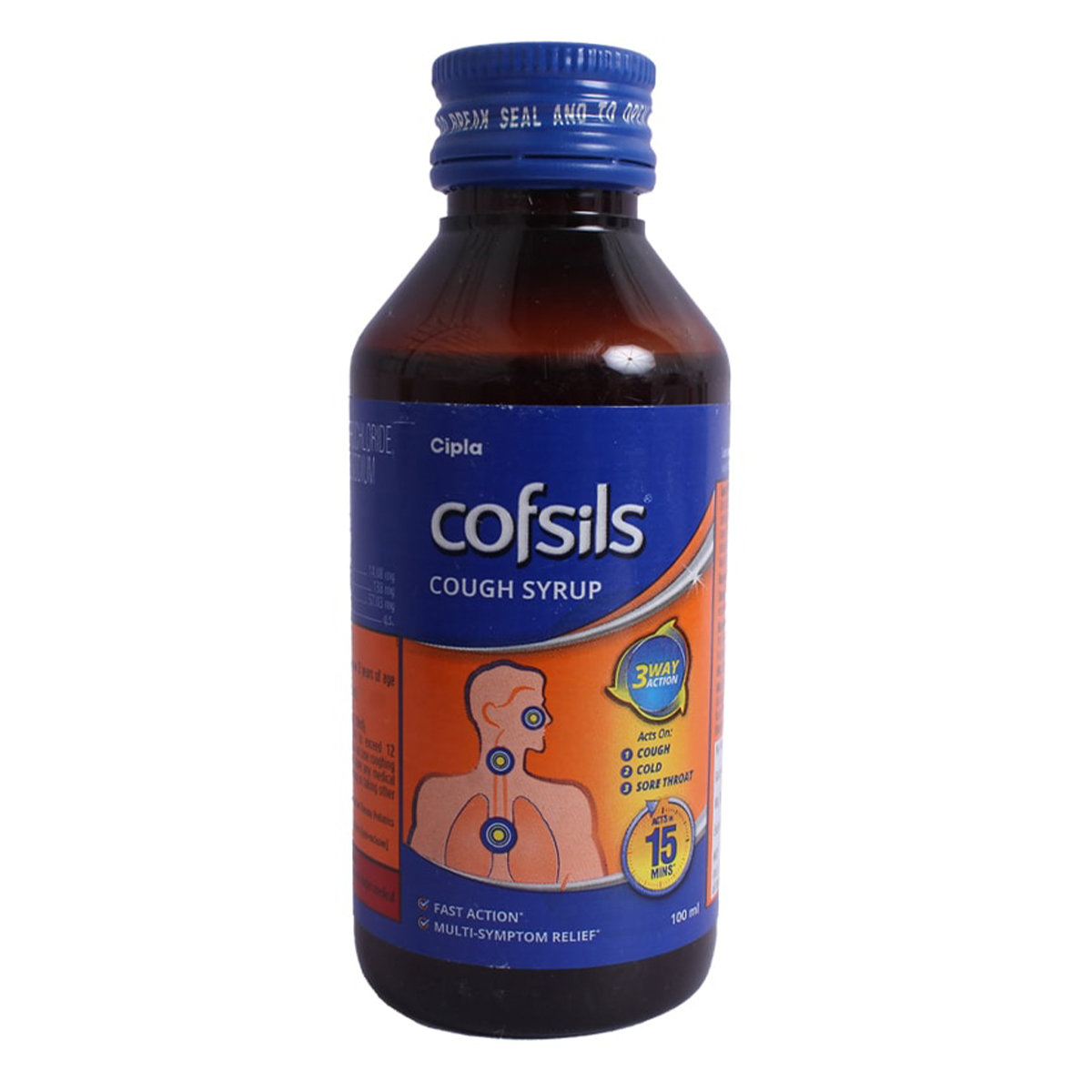
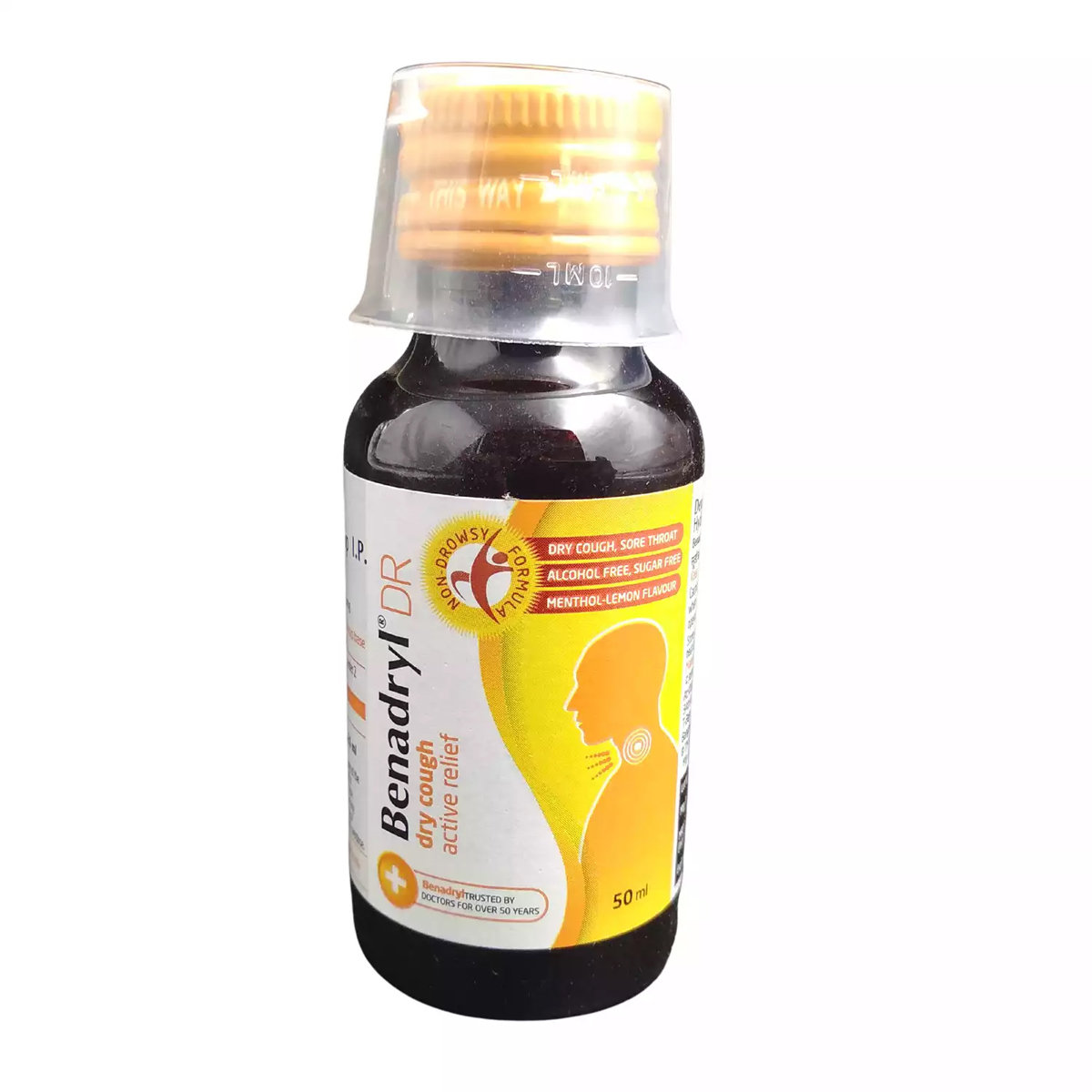

_0.jpg?tr=q-85)

